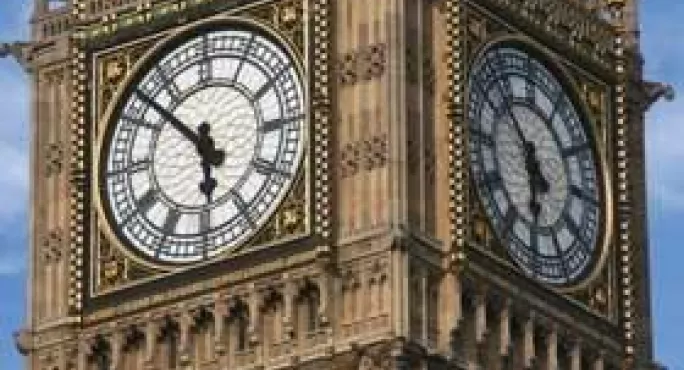Election 2010 - ‘MPs set bad example to society’

On may 6, it will have been exactly 18 months since Lindsay Roy became MP for Glenrothes in a dramatic by-election victory.
Scotland’s most famous headteacher-turned-politician - the only one, he jokes - still misses the day-to-day contact with pupils and school staff. Latterly he was head at Kirkcaldy High (the Prime Minister’s old school), where he was parachuted in after a poor inspection; previously, he had been head at Inverkeithing High.
But Mr Roy is keeping a finger in the educational pie, working with Ed Balls, the Education Secretary in England, and serving on a cross-party group, the Progressive Education Network in England, which brings people from high-performing schools together to examine best practice.
He has also been looking at the proposed “licence to teach” in England, which he feels should be accompanied by access to continuing professional development, and the entitlement in England to one-to-one tuition for youngsters who are falling behind.
Mr Roy’s expertise has been sought not only by Labour Party colleagues on aspects of policy development - notably Curriculum for Excellence and leadership - but by politicians from other parties, too. Asked to name names, he politely declines, saying it would embarrass others more than him.
You can take the man out of teaching, but not the teacher out of the man: he believes that education is still “too much of a political football” and that operational matters should be the “preserve of the profession”.
Curriculum for Excellence was badly named, he believes - since it is more about teaching practice than courses, it should have been called “Agenda for Excellence”. And the whole process has been dogged by a lack of clarity in communicating the quintessential things that make it different.
“It’s all very well to talk about driving up standards, but what do they mean by that?” he wonders.
Other educational hobby horses include the cuts to frontline services such as music tuition, probationer unemployment and the patchy performance of council quality assurance staff in delivering benefits to pupils.
Like Peter Peacock, the former Scottish Education Minister, Mr Roy favours the reorganisation of the current 32 education authorities into a much smaller number of education boards.
It is time, too, to shed Scotland’s “always been” mentality: just because things have always been done in a certain way does not mean they should stay like that, he argues. He has been impressed by what he has seen in New Zealand, Finland and some schools in England.
With Scotland’s performance slipping down international comparison tables, it’s time to adopt the “John West model” and “take the best” without necessarily “rejecting the rest”, he says.
At Mr Roy’s MP’s surgery, constituents often come to him with non- Westminster issues. He and his team do their best to help solve problems, from dealing with the Child Support Agency to handling tax credits and immigration issues.
But, he confesses: “I do feel frustrated that Scottish education is not within my remit.
“If I compare the two jobs, being an MP has a different constituency. The biggest satisfaction in education was making a difference, and there have been instances where people have come to me as an MP and said: `You made a difference’.”
Mr Roy has no regrets about moving into the bear pit of Westminster politics, and will be standing for re-election on May 6. Headteachers, along with church ministers and doctors, have always commanded the respect of the community. But if the credit crunch has led to bankers falling down the public approval ratings, the parliamentary expenses scandals has now placed MPs “in the same league table as, dare I say, journalists”, he jokes.
The behaviour of a minority has tarred all MPs, he believes, blaming a “lack of focus, lack of self-discipline, greed and character assassination” for politicians’ poor ratings with the public.
Mr Roy comments: “MPs should be trying to set examples to other people in society but, too often, they are guilty of making highly personal attacks on other people which are quite inappropriate. I think it sets a very bad example to young people and to society in general.”
With his heidie’s instincts to the fore, Mr Roy suggests more use of the sanction of temporary exclusion from the Commons chamber. “That would concentrate their minds,” he says.
If being a headteacher entailed long hours, then so does life as an MP. Travelling between Parliament and his constituency takes five-and-a-half hours, while his role as Parliamentary Private Secretary to Tessa Jowell, the Cabinet Office minister, has added issues such as the voluntary sector, the Olympics and the operation of the civil service to his brief.
Coming into Parliament as a new boy, he would like to see some reforms, such as electronic voting instead of having to pass through the lobby, and greater discipline imposed on MPs who “grandstand” for 40 minutes on their pet subject.
“If they did that in a school,” he laughs, “people would be saying to them: `And what’s your point?’”
elizabeth.buie@tes.co.uk.
Keep reading for just £1 per month
You've reached your limit of free articles this month. Subscribe for £1 per month for three months and get:
- Unlimited access to all Tes magazine content
- Exclusive subscriber-only stories
- Award-winning email newsletters